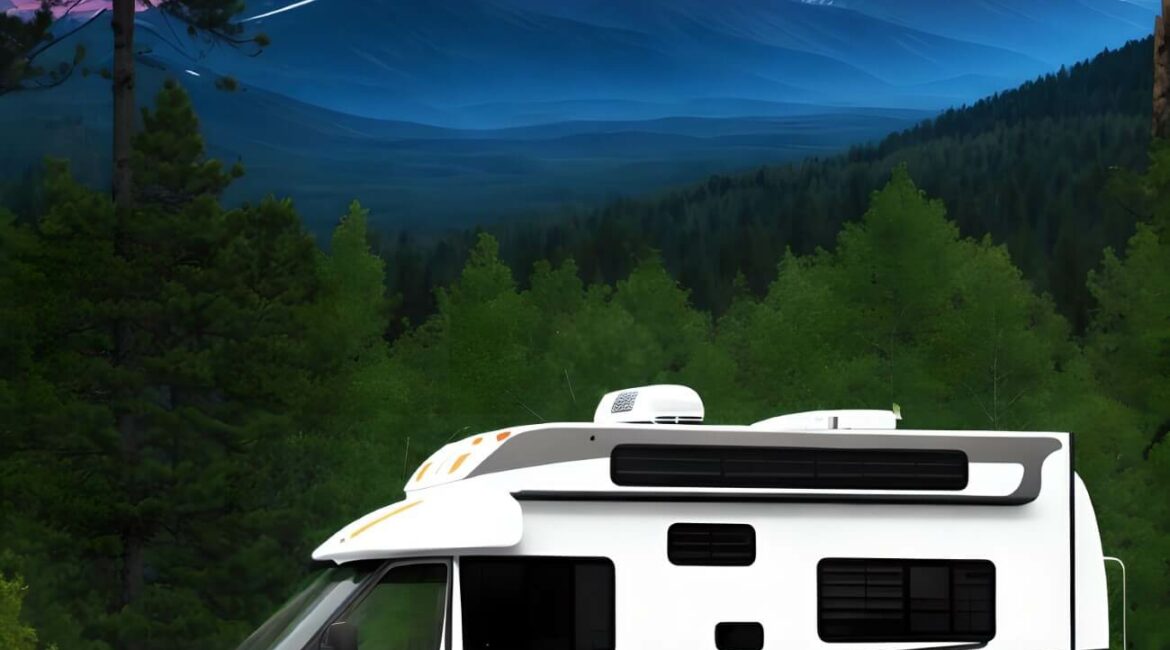Are you the proud owner of an RV? Whether you’re a seasoned traveler or a newbie to the world of recreational vehicles, proper RV storage is crucial to ensure your investment stays in top shape and is ready for your next adventure. In this quick guide, we’ll walk you through some essential RV storage tips to keep your home-on-wheels in tip-top condition.
1. Clean Thoroughly Before Storage
Before you tuck your RV away for an extended period, give it a good cleaning. Wash the exterior to remove dirt, grime, and bugs. Clean the interior to prevent any crumbs or food residue from attracting pests. Empty and clean the refrigerator and cabinets, and don’t forget to sanitize the bathroom. Cleaning not only keeps your RV fresh but also prevents any unwanted surprises when you take it out of storage.
2. Protect Against Pests
Nothing can ruin an RV faster than a pest infestation. Rodents, insects, and even birds can wreak havoc on your vehicle. Seal any openings where pests can enter, such as gaps around pipes and vents. Consider placing mousetraps or deterrents inside your RV. For added protection, use RV-specific pest repellents or hire a professional pest control service.
3. Tire Care
Tires are one of the most critical components of your RV. Ensure they are properly inflated to the manufacturer’s specifications. If your RV will be parked for an extended period, consider using tire covers to protect against UV damage. Periodically move your RV slightly to prevent flat spots from forming on the tires.
4. Battery Maintenance
Batteries can drain over time, especially in storage. To prevent this, disconnect the batteries or use a battery maintainer (also known as a trickle charger) to keep them charged. Make sure to check the water levels in your lead-acid batteries and top them up if necessary.
5. RV Covers
Investing in an RV cover can add an extra layer of protection against the elements. RV covers shield your vehicle from UV rays, rain, and snow, helping to maintain its appearance and extend its lifespan. Make sure to choose a cover that fits your RV snugly for the best results.
6. Fuel and Propane
If your RV has a gasoline or diesel engine, it’s essential to stabilize the fuel before storage. Add a fuel stabilizer to the tank and run the engine to ensure it circulates through the system. For propane systems, shut off the valves at the tanks and appliances to prevent leaks.
Seasonal RV Storage Considerations
When it comes to RV storage, the season in which you plan to store your vehicle plays a significant role. If you’re putting your RV into storage for the winter, you’ll need to take extra precautions to protect it from freezing temperatures. This includes winterizing the water system to prevent burst pipes and using specialized RV antifreeze. On the other hand, if you’re storing your RV for the summer or in a hot climate, you should focus on sun protection. Investing in UV-resistant covers, window shades, and tire covers can help shield your RV from the sun’s damaging rays, preserving its paint and preventing interior damage.
Security Measures for RV Storage
The safety of your RV during storage is a top concern. To protect your investment, consider security measures beyond pest control. Installing motion-activated lights around your RV can deter potential intruders. Additionally, investing in wheel locks, hitch locks, and steering wheel locks can make it more challenging for thieves to tow or drive away with your RV. Some storage facilities also offer gated access, security cameras, and on-site personnel for added peace of mind. Don’t forget to check if your RV insurance policy covers storage-related incidents or consider purchasing additional coverage during the storage period.
Regular Maintenance Checks
While proper storage is essential, don’t neglect regular maintenance checks during the storage period. Every few weeks, visit your RV to inspect for any issues that may have arisen. Check for signs of moisture, leaks, or pest intrusion. Run the engine, generator, and other systems to ensure they’re functioning correctly. Lubricate moving parts and apply silicone spray to seals and gaskets to prevent drying and cracking. By performing these routine checks, you can catch and address problems early, ensuring your RV is ready for your next adventure when you take it out of storage.
FAQ : Your Quick Guide To RV Storage Tips
Can I store my RV in my backyard?
Yes, you can store your RV in your backyard, but there are a few factors to consider. Check local regulations, as some areas have restrictions on RV storage. Ensure your RV has enough clearance and space for safe storage, and consider using leveling blocks to prevent tire damage.
How often should I start my RV during storage?
It’s a good practice to start your RV engine and generator every few weeks during storage. Let them run for about 30 minutes to circulate fluids and maintain lubrication. Make sure you do this in a well-ventilated area to avoid carbon monoxide buildup.
Should I leave my RV refrigerator running during storage?
It’s generally best to turn off your RV refrigerator during storage. After cleaning and defrosting it, leave the doors open to prevent mold and odors. Place an open box of baking soda inside to absorb any remaining moisture.
Are there any special considerations for storing an RV in cold weather?
If you’re storing your RV in cold weather, take extra precautions. Winterize your RV by draining the water system and adding antifreeze. Use an RV skirt to insulate the undercarriage, and consider using heated water hoses to prevent freezing.
Can I store my RV with a full tank of gas?
It’s generally recommended to store your RV with a full tank of gas to minimize condensation inside the tank, which can lead to water contamination. Adding a fuel stabilizer is also a good practice to prevent fuel degradation.
- Transform Your Health with Medford Medical Weight Loss Program - June 9, 2025
- A Chat with Nate and Mika, Christian Wedding Photographers - July 18, 2024
- Ultimate Guide To Playing Online Casinos - May 27, 2024









